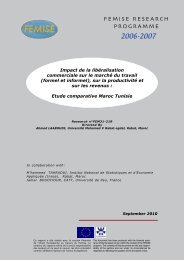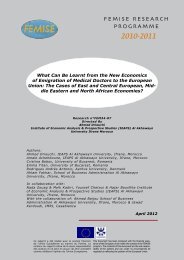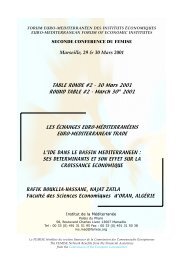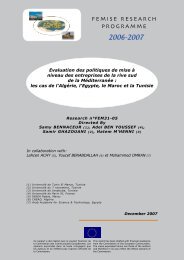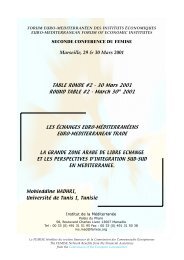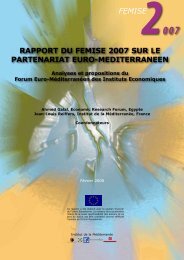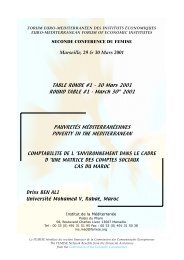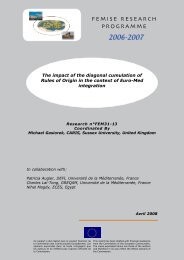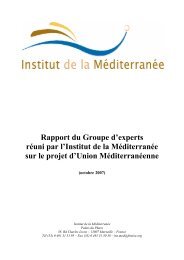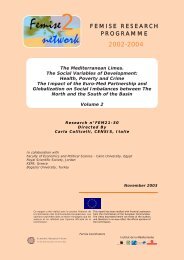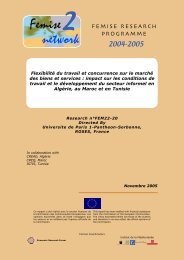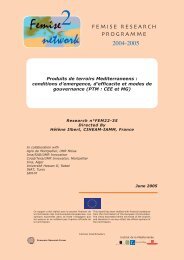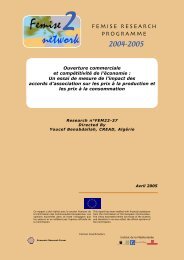PDF, GB, 139 p., 796 Ko - Femise
PDF, GB, 139 p., 796 Ko - Femise
PDF, GB, 139 p., 796 Ko - Femise
You also want an ePaper? Increase the reach of your titles
YUMPU automatically turns print PDFs into web optimized ePapers that Google loves.
Working hypotheses<br />
Nine hypotheses will be presented; each one is derived from either theoretical literature or<br />
historical analysis. Some arguments are given exogenously, such as the level of development<br />
or the level of democracy, since it is unlikely that any of these two are going to change<br />
significantly in the near future, while others relate directly to the regulatory environment of<br />
conducting business. Data sources for each variable used in the testing of the hypotheses are<br />
fully documented in the appendix B.<br />
Hypothesis 1: Corruption is lower in higher economically developed countries<br />
The economic linkage between the economic development and corruption suggested by the<br />
literature is undeniable. Corrupt deal exposure is much more probable in more economically<br />
developed countries. In addition to its clear impact on democracy, economic development<br />
improves the spread of education, literacy, and depersonalizes economical relationships —<br />
each of these ought to increase the likelihood that a misuse of public power will be detected<br />
and tackled. Therefore, the first hypothesis is that corruption will decline as the economic<br />
development improves. Note that the index of corruption is calculated with higher values<br />
pertaining to cleaner governments; hence, a strong positive relation is expected.<br />
Hypothesis 2: Stable democratic institutions and corruption are expected to be positively<br />
correlated<br />
Democracy is a complex phenomenon, involving not just a single attribute but a<br />
complementary set of characteristics including free and fair elections, the rule of law, respect<br />
for human and civil rights, active citizen participation in the political process. The common<br />
argument in favour of democracy connects democracy with citizens’ freedom, the availability<br />
of information on examples of corruption and the voice to protest against it. Moreover, there<br />
is a significant coincidence of free markets and democracies. Even though there are some<br />
cases of spread of corruption in fresh democracies, the consolidation of democratic<br />
institutions reduces corruption in the long run. Many researchers suggest that electoral<br />
competition, checks, and balances associated with consolidated democratic systems facilitate<br />
a public scrutiny that impedes politicians’ wants for private gains as they risk losing elections<br />
115



